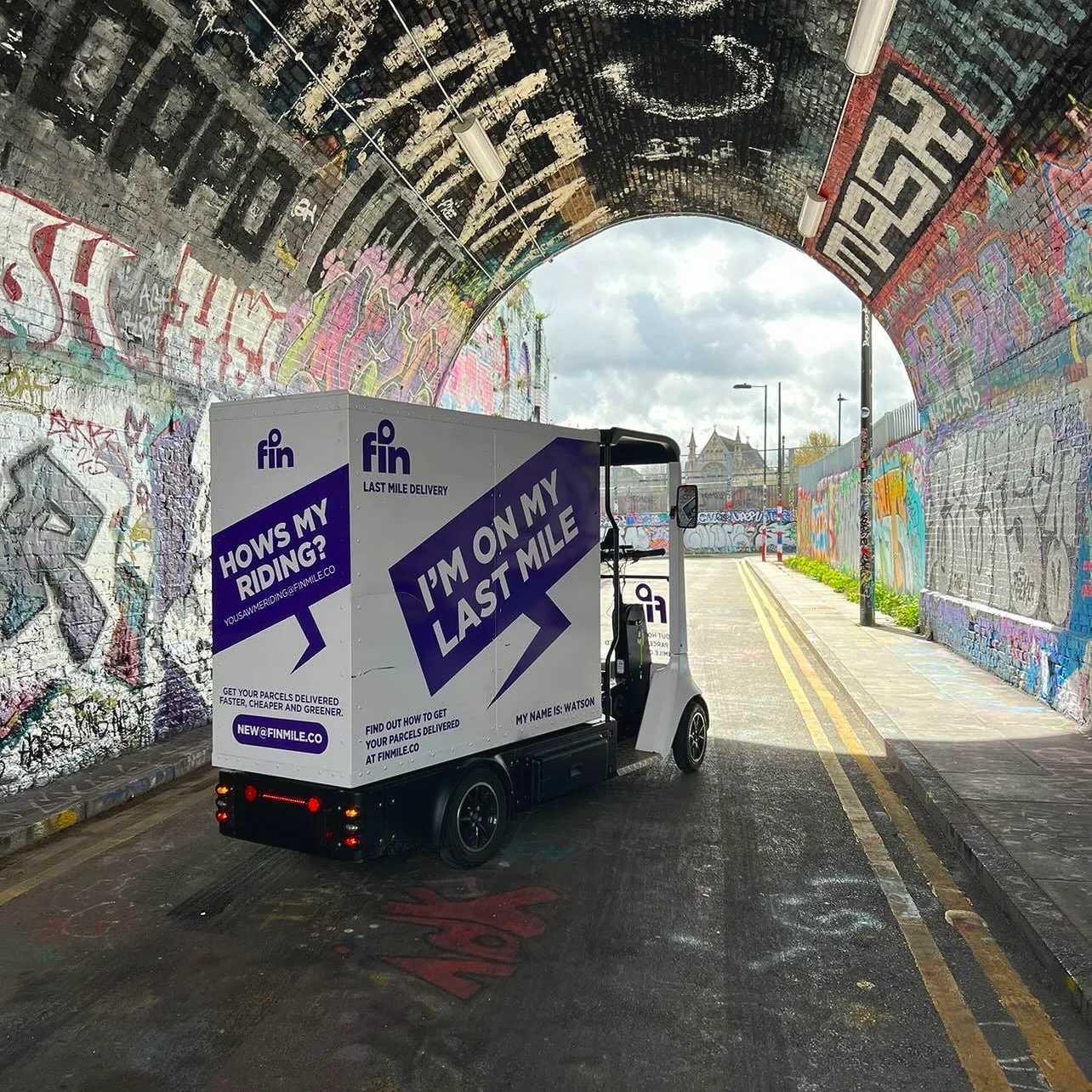Urban infrastructure is evolving rapidly due to increasing population density, environmental concerns, and the need for more efficient transportation systems. One of the most innovative solutions addressing these challenges is eQuad, an electric-assist vehicle designed to revolutionise last-mile delivery and urban logistics. Produced by Fernhay, eQuad is more than just a transportation tool—it’s a glimpse into the future of how we design and manage urban spaces.
The Growing Demand for Efficient Urban Logistics
As cities expand, the demand for faster, more reliable, and environmentally friendly delivery methods has surged. Traditional delivery vehicles, including vans and trucks, contribute to traffic congestion, air pollution, and inefficient use of urban space. With consumer expectations shifting towards faster delivery services, especially in e-commerce, urban areas are grappling with how to balance this demand with sustainable infrastructure.
eQuad offers a promising solution to this growing problem. Its design specifically caters to the needs of businesses that require agile, eco-friendly, and cost-effective transportation for urban deliveries. By enabling companies to navigate crowded streets with ease, eQuad can handle the complex logistics that traditional vehicles struggle with in dense urban environments.
Why Electric-Assist Vehicles Are Crucial
Electric-assist vehicles like the eQuad play a crucial role in the future of sustainable urban infrastructure. One of the core benefits of such vehicles is their reduced environmental impact. With zero emissions and minimal noise pollution, they address two of the most significant concerns for cities—air quality and noise levels. This aligns with global efforts to reduce greenhouse gas emissions and create greener urban environments.
Additionally, electric vehicles reduce operational costs for businesses. The lower cost of maintenance, reduced fuel expenses, and the potential for extended vehicle lifespans make them an economically viable solution for companies involved in urban logistics. Fernhay’s eQuad integrates these advantages with a user-friendly design that enables companies to scale their last-mile delivery services efficiently.
eQuad’s Contribution to Reducing Congestion
Traffic congestion remains one of the largest challenges in major cities. With more people and goods being transported through urban centres, streets are becoming overcrowded, leading to delays and inefficiencies in supply chains. Large trucks and delivery vans not only exacerbate this problem but also struggle to navigate narrow streets and crowded pedestrian areas.
The compact design of the eQuad makes it an ideal alternative for navigating urban areas that are off-limits or impractical for larger vehicles. By replacing large delivery vans with smaller, nimbler vehicles like the eQuad, cities can reduce overall traffic congestion. This, in turn, helps improve the flow of goods and services within the city, ensuring that businesses can continue to meet customer demands efficiently.
Revolutionising Last-Mile Delivery with eQuad
The last mile of delivery—the final step of the shipping process—can account for over 50% of total shipping costs. It’s also one of the most challenging parts of the delivery chain due to the complexities of urban infrastructure. Traditional delivery vehicles face numerous obstacles in the last-mile stage, including restricted access zones, pedestrian traffic, and parking limitations.
Fernhay’s eQuad is specifically designed to overcome these challenges. Its small footprint allows it to easily navigate restricted zones, pedestrian areas, and narrow streets that are inaccessible to larger vehicles. The eQuad can also access places like bicycle lanes and shared urban spaces, making it an incredibly versatile vehicle for deliveries in urban settings.
Additionally, its electric-assist capabilities enable it to carry significant payloads without sacrificing speed or efficiency. This makes it an ideal solution for companies looking to maintain fast, reliable delivery times while reducing their carbon footprint.
Supporting a Greener, More Sustainable Urban Environment
Environmental sustainability is becoming a critical focus for cities around the world. As climate change continues to impact urban areas, municipalities are increasingly looking for ways to reduce emissions, improve air quality, and create more livable spaces for residents. Traditional delivery vehicles, with their reliance on fossil fuels, contribute significantly to urban pollution.
The introduction of eQuad helps reduce this environmental burden. With its fully electric drive, the vehicle contributes zero emissions, significantly reducing the carbon footprint associated with urban deliveries. Moreover, its smaller size means it requires less energy to operate than traditional delivery vehicles, making it a more energy-efficient option for businesses focused on sustainability.
By adopting vehicles like the eQuad, cities can reduce their reliance on fossil fuels and move towards greener, more sustainable transportation systems. This shift not only benefits the environment but also improves the quality of life for city residents by reducing noise pollution and improving air quality.
Fernhay’s Vision for Urban Mobility
As the producer of the eQuad, Fernhay is at the forefront of transforming urban mobility. The company’s vision goes beyond just creating a vehicle—it aims to reshape the way we think about urban infrastructure and logistics. By offering solutions that prioritize sustainability, efficiency, and adaptability, Fernhay is helping cities transition to more modern, environmentally friendly transportation networks.
In the future, as more businesses and municipalities adopt electric-assist vehicles like the eQuad, we can expect to see a marked improvement in urban infrastructure. Streets will become less congested, air quality will improve, and cities will become more livable for residents. Fernhay is not only playing a key role in making this vision a reality but is also leading the way in the development of innovative, sustainable solutions for urban mobility.
Conclusion
The future of urban infrastructure hinges on finding sustainable, efficient solutions to the growing challenges of transportation and logistics. eQuad represents a major step forward in this direction, offering a practical, eco-friendly alternative to traditional delivery vehicles. With its ability to reduce congestion, lower emissions, and streamline last-mile delivery, eQuad is poised to play a pivotal role in shaping the cities of tomorrow.
As more cities and businesses recognise the value of electric-assist vehicles, Fernhay’s innovative approach to urban mobility will continue to drive progress, helping to build the sustainable, efficient, and resilient urban infrastructure that the future demands.

